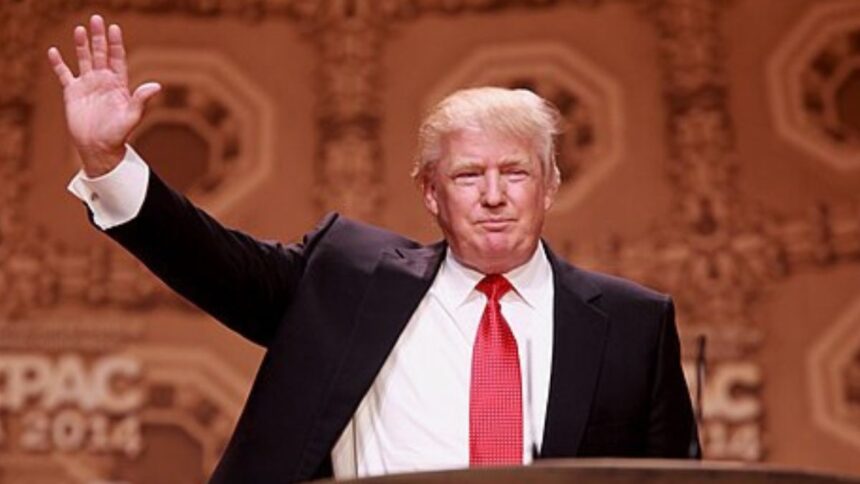Former President Donald Trump Survives Two Assassination Attempts in Two Months
By Casey Harper (The Center Square)
Former President Donald Trump has narrowly escaped two assassination attempts in a span of just two months, sparking concerns about the effectiveness of the U.S. Secret Service in ensuring the safety of the Republican presidential nominee.
The most recent incident involved a would-be assassin who was apprehended by Secret Service agents after being spotted with an assault-style rifle and scope at a golf course where Trump was playing. The swift action of the agents prevented a potentially tragic outcome.
Security experts have raised questions about how the assailant managed to evade detection and set up at the location for 12 hours, highlighting potential gaps in Trump’s protection despite heightened security measures following a previous attempt on his life.
Comparatively, President Joe Biden receives more robust protection than Trump, a discrepancy that has raised concerns about the adequacy of security measures for high-profile figures like former presidents.
Lora Ries, a former official at the Department of Homeland Security, criticized the Secret Service for failing to adapt their security protocols to the current threat level facing Trump. She emphasized the need for advanced security measures such as drones, dogs, and counter snipers to safeguard against potential attacks.
The circumstances surrounding the second assassination attempt have raised suspicions, with reports suggesting that the shooter had been positioned at the site for an extended period, despite Trump’s impromptu decision to play golf. The FBI is conducting an investigation into the incident, with Florida Governor Ron DeSantis also launching a separate inquiry.
Ries suggested that Trump should consider hiring private security to supplement the Secret Service’s protection, citing concerns about the agencies’ ability to effectively safeguard the former president. She called for a thorough overhaul of the leadership at the DOJ, FBI, and Secret Service to address systemic failures in security protocols.
Chris Ragone, a security expert, criticized the lack of resources allocated to Trump’s protection and pointed to potential bias within the Department of Homeland Security leadership as a contributing factor to the security lapses. He emphasized the need for a comprehensive review of the security arrangements for high-profile individuals like Trump.
President Biden acknowledged the need for additional support for the U.S. Secret Service but did not provide specific details on how the agency could be strengthened to prevent future security breaches.
The FBI’s ongoing investigation into the assassination attempts will shed light on the lapses in security protocols and inform future security measures for protecting public figures.
Syndicated with permission from The Center Square.
The world of technology is constantly evolving, with new innovations and advancements being made every day. One of the most exciting developments in recent years has been the rise of artificial intelligence (AI). AI is a branch of computer science that aims to create machines that can perform tasks that normally require human intelligence, such as visual perception, speech recognition, decision-making, and language translation.
One of the key areas where AI is making a big impact is in the field of healthcare. AI has the potential to revolutionize the way we diagnose and treat diseases, as well as improve patient outcomes and reduce healthcare costs. For example, AI-powered algorithms can analyze medical images, such as X-rays and MRIs, to detect abnormalities and make accurate diagnoses. This can help doctors identify diseases earlier and provide more targeted treatments.
AI is also being used to develop personalized treatment plans for patients. By analyzing vast amounts of data, AI algorithms can identify patterns and trends that can help doctors tailor treatments to individual patients based on their unique characteristics and medical history. This can lead to better outcomes and fewer side effects.
Another area where AI is having a big impact is in the field of drug discovery. Developing new drugs is a long and expensive process, but AI can help speed up the process by analyzing massive amounts of data to identify potential drug candidates and predict their effectiveness. This can help researchers identify promising drug candidates more quickly and bring new treatments to market faster.
AI is also being used to improve the efficiency of healthcare systems. For example, AI-powered chatbots can provide patients with information and assistance, reducing the burden on healthcare providers and improving patient satisfaction. AI algorithms can also help hospitals and clinics optimize their operations by predicting patient demand, managing resources more effectively, and reducing wait times.
Overall, AI has the potential to transform the healthcare industry in ways we never thought possible. By harnessing the power of artificial intelligence, we can improve patient outcomes, reduce healthcare costs, and revolutionize the way we diagnose and treat diseases. The possibilities are endless, and the future of healthcare looks brighter than ever thanks to AI.







